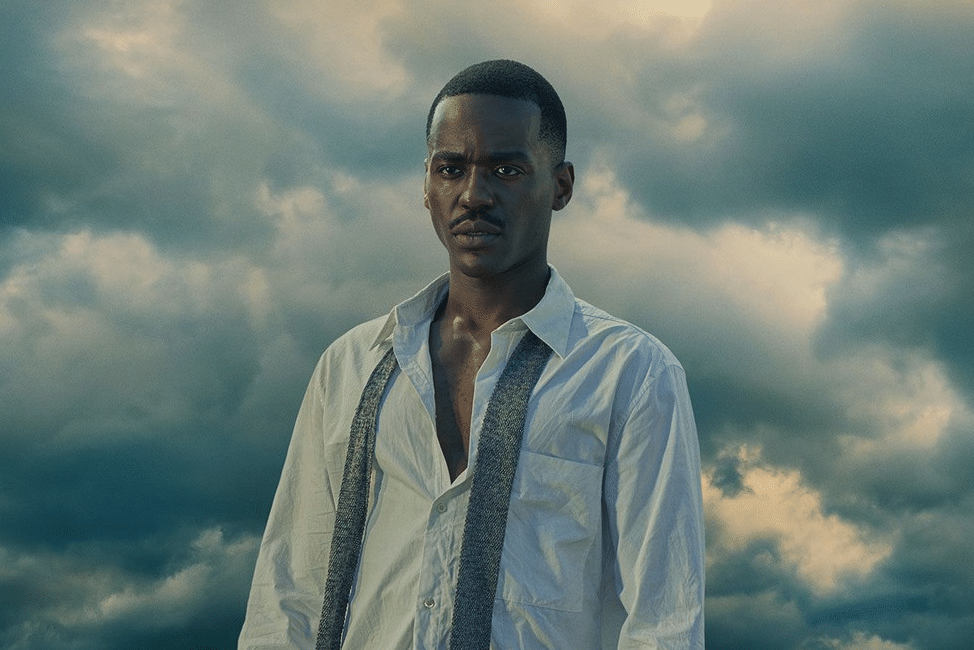When Doctor Who aired its final episode on the ABC last month, Aussie fans couldn’t know its cliffhanger ending would have such a dark twist.
That episode was indeed final – for the first time in almost 60 years, the much-loved British sci-fi show was to be pulled from the world of free-to-air and trapped in the Disney+ universe. Much of the local outrage centred on this loss, the breaking of a relationship that had seemed as perennial as the Doctor and his, her or their TARDIS.
Otherwise, the mood among Who fans was suitably celebratory. After a difficult few years, where the series travelled away from the mainstream into baroque nerdiness – a journey tracked by plummeting ratings – the show was about to enter a new golden age.
Read: Doctor Who leaves the ABC for Disney+
Award-winning scribe Russell T Davies (It’s A Sin) was returning to captain the Doctor back to the heart of pop culture, viewer fave David Tennant was back in the lead for three special episodes and Disney had bolstered the budget to £100 million for the next series (thought to be ten times the current amount). Not to mention the arrival of Sex Education’s hugely charismatic star Ncuti Gatwa as the new Doc.
Regeneration time
It would take the most trainspottery of anoraks to argue this investment could be anything but a good thing for the show. And yet. Given their global recycling project – remaking, refashioning, repacking all the stuff you used to love – it’s not hard to see why Disney would want access to 60 years of intellectual property. Likewise, it’s no mystery why BBC Studios might want to regenerate one of their biggest exports and break through into new markets.
But will Doctor Who be better for signing up for a load of mouse cash?
Read: Blockbuster on Netflix isn’t as bonkers as the real-life experience
There’s a reason that Who’s departure from the ABC hurts (beyond the financial sting of a Disney+ subscription). National broadcasters such as the ABC and BBC have long stood as buttresses against American corporate imperialism. Disney films and programs have to be popular. BBC programs just had to be good.
Signing up to the Disney behemoth and its all-assimilating American worldview feels something like surrender. Not just to the Disney empire, but to the idea that TV should compete with the kind of superhero spectacle that has smothered Hollywood over the past decade. In an age where Star Wars, Marvel and Disney productions all feel the same, Who has (until now) retained a distinct character. More cash seems likely only to weaken that.
Twice the tedium
The recent golden age of TV – where TV was smarter and deeper than film – has been replaced by the era of Rings of Power, where television is more expensive than film and twice as tedious. Everything is trying to be Star Wars.
The appeal of Who – and more broadly, television – shouldn’t be its spectacle but its domesticity.
Read: The Lord of the Rings: The Rings of Power – nice cake, OK icing
Doctor Who’s small budget has long been one of its virtues, meaning that it not only had to be cleverer than the US brand of TV science fiction (Buck Rogers, Battlestar Galactica) but also ended up more firmly embedded in a recognisable world. Who saw aliens infesting small village pubs or high street shopfronts instead of wiping out entire cities of gleaming skyscrapers.
Russell T Davies understood this on reviving the series in 2005, sending Christopher Eccleston’s leather-jacketed Time Lord to London council estates and entwining him with his companion’s very real family. Of course, that didn’t stop him stretching the BBC budget to its limits, as hordes of Daleks zoomed down on Central London or David Tennant leapt through a mirror on a horse (from a spaceship, naturally).
Cheap the rewards
No doubt Davies will be just as inventive and clever with his expanded budget – much of which may go on promotion or big-name guest stars – but it would be a shame to think big dollars are essential for the show’s survival.
Cheapness is baked into the DNA of Doctor Who – originally devised as a bridge between a pop music show and the football. It survived for 26 years because it was too cheap to kill, only shown the door by the BBC when the possibility of a collaboration with Hollywood first reared its head.
If its aliens looked bargain basement, that only made them more accessible to generations of children who could have a crack at building their own with a few toilet rolls and tin foil.
The Doctor’s character was similarly homespun – a backyard tinkerer from Gallifrey who, even when he stopped looking like your granddad, still looked like he’d borrowed his clothes.
Is it a coincidence that many of the shows to have entered the timeless realm of the ‘classic’ were made on the cheap? Monty Python, Absolutely Fabulous and The Office were all granted their unique voice because the stakes were low. When the budgets are shoestring, creatives can take risks. Who’s history is dotted with bonkers choices and the show is all the richer (and the more loved) for it.
Read: Los Espookys is queer and wonderfully weird
Longstanding Who fans thrilled to its revived fortunes in the early 2000s, but the focus on spectacle and excitement has come at the cost of the creeping suspense that defined its past triumphs.
Trading on that suspense – the spookiness its titles once summoned – could provide its salvation if Disney+ doesn’t like the ratings next year. Back in 2002, before Davies brought the Doctor back to screen, Sherlock co-creator Mark Gatiss had some salient advice for future show runners:
‘Don’t shoot yourself in the foot by writing great sweeping epics set on the frozen planet of Morablia, Strand a team of scientists in a frozen ice-station on Morablia … and then turn the lights off!’
In short? Don’t try to be Star Wars.





